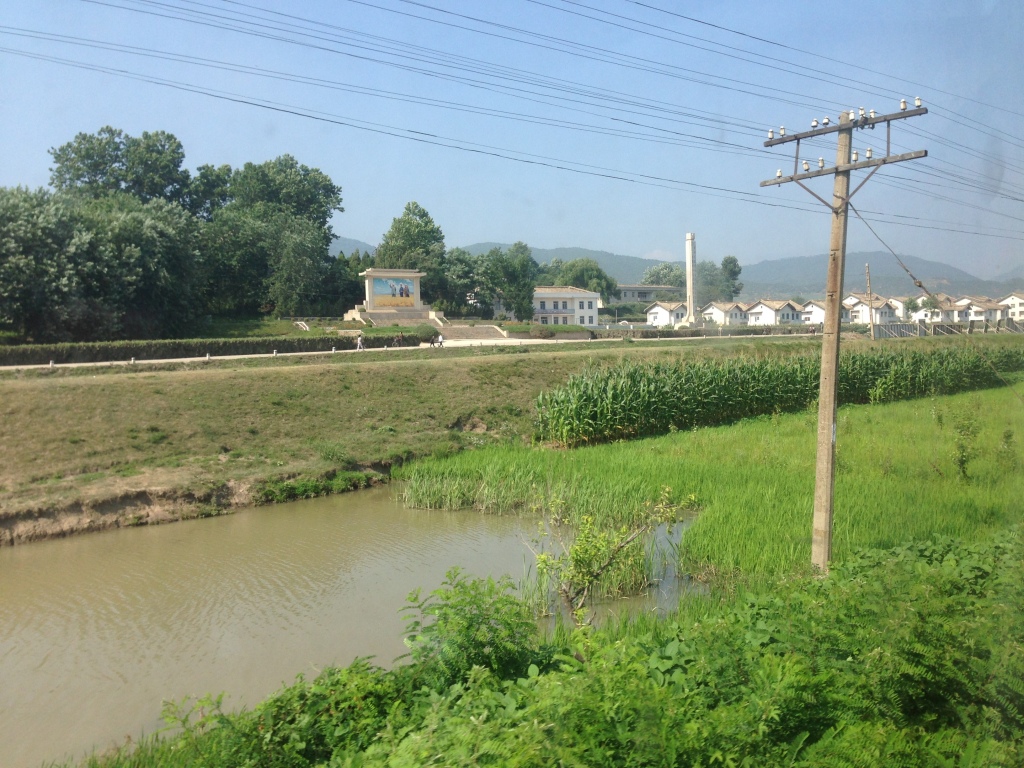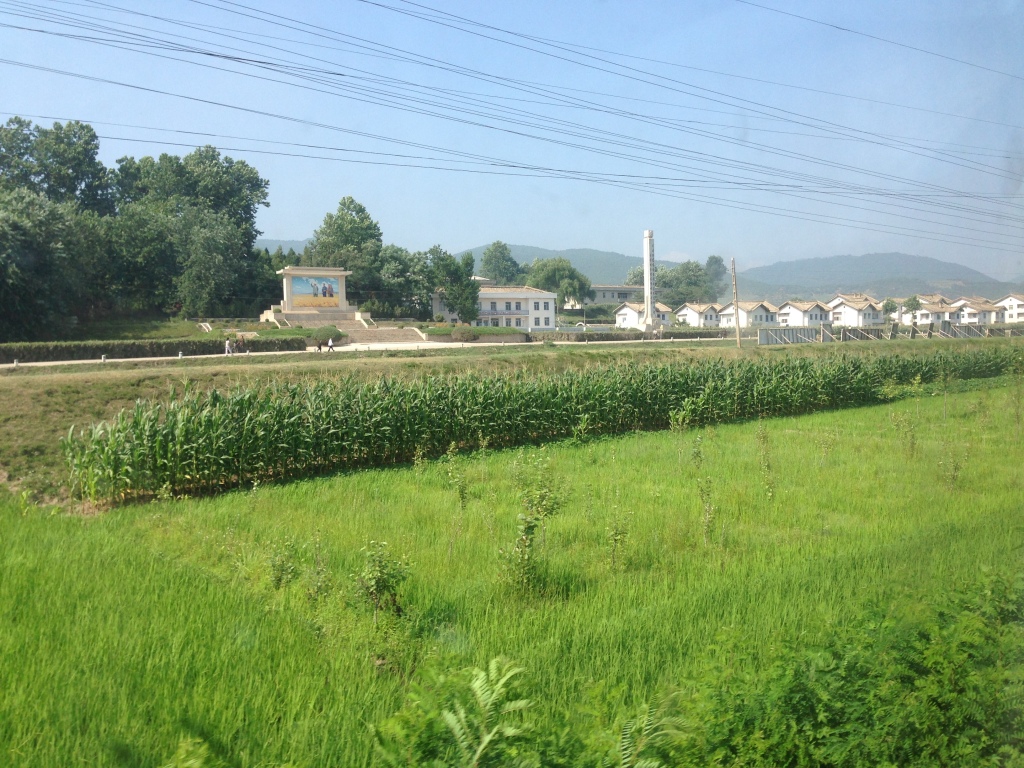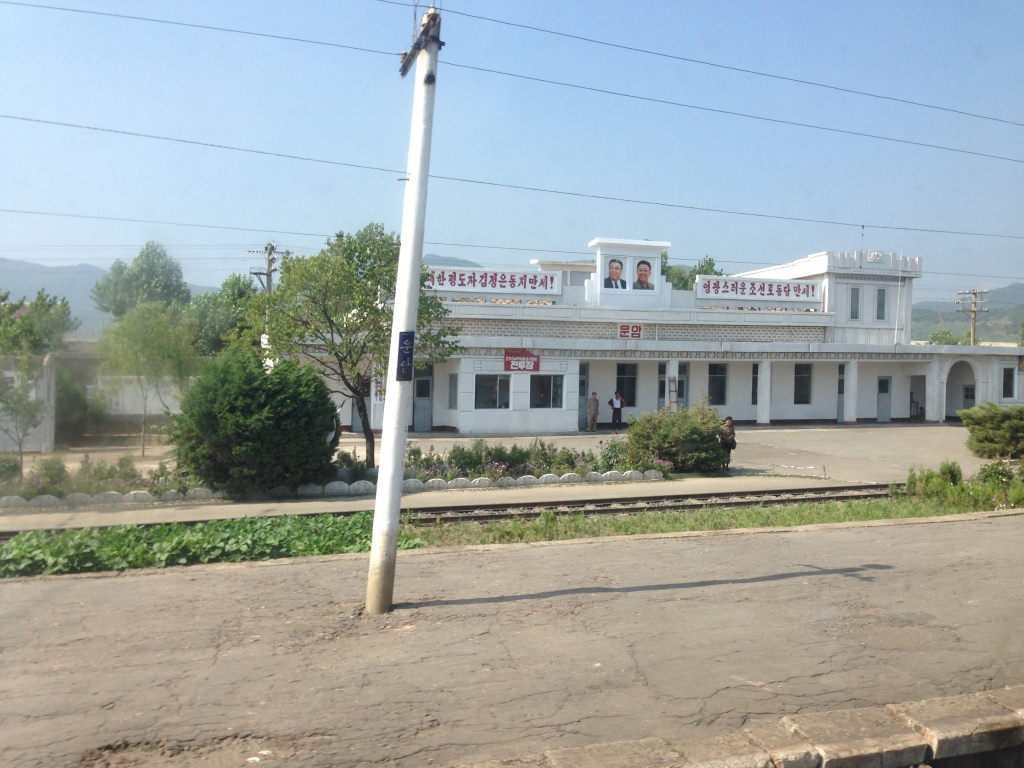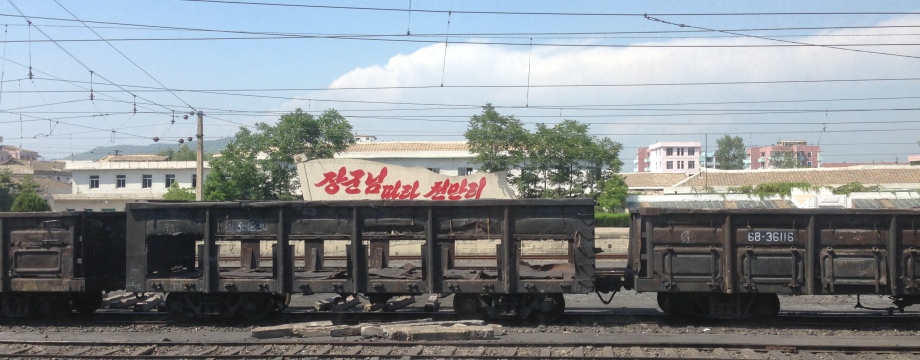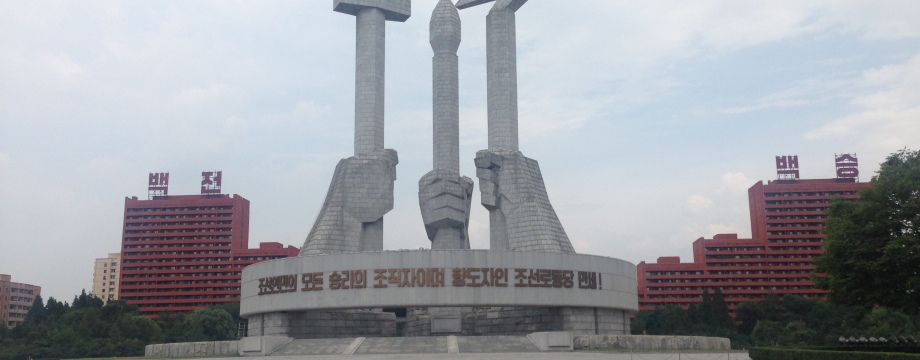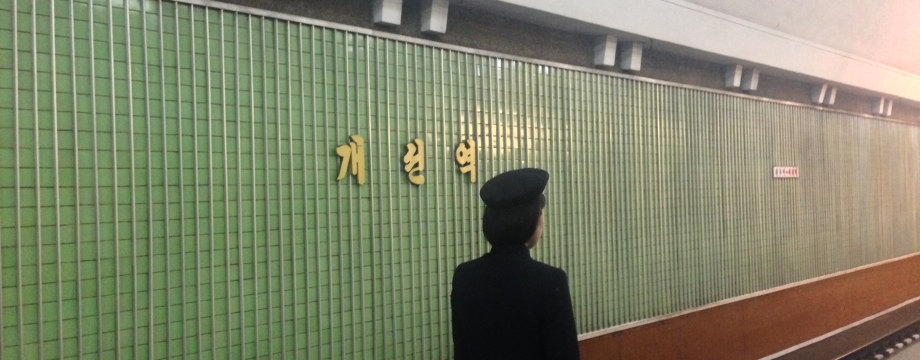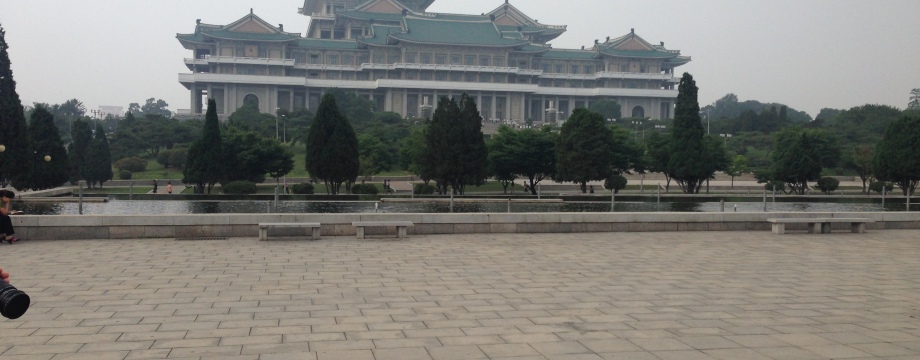Around a month ago I joined my good friends at Young Pioneer Tours on a trip I have been wanting to do for most of my life. I travelled to the Democratic People’s Republic of Korea (otherwise known as North Korea, or Best Korea). I’ve always had a fascination with the Korean War and with the DPRK in particular.
Introductions
To start the tour we were to meet on the second floor of a hostel in Beijing. Here we waited for our friend and tour guide, Gareth. Yi and myself were there especially early. The first two to arrive where a German man who lives in Beijing, and a Vietnamese man who lives in England. He was also a Liverpool fan so I had fun reminiscing with him about Liverpool and England in general. After these two an American man turned up. He told us of how he came to China in the 80s and managed to go around several villages.
Eventually someone from YPT turned up. He wasn’t our guide – he had been delayed the night before so he would be a late. He gave us an introduction about North Korea – what to expect and how to behave. The major points were that asking any questions were fine as long as they weren’t obviously pointed, taking pictures is generally fine as long as you avoid pictures of the military and that there was zero chance that we would be arrested (unless we decided to do something stupid like tear up our passes).
He gave us our tour passes, but we noticed that one was missing. That was when we realised that Yi, being Chinese, actually had a real visa in her passport. The rest of us were insanely jealous.
It was around this time that our actual guide, showed up. We hung around and had a few drinks in order to get to know each other a little better. Most people had opted to fly in to the DPRK, but Yi and myself had decided to take the train in, since we had heard that this was a good opportunity to meet and talk to North Koreans. Our tour guide was the only other that would take the train with us.
When it was time to go we went down to get some beer and food for the ride in. The plan was an overnight train to Dandong (in the northeast of China), followed by a daytime train into Pyongyang, North Korea’s capital.
Overnight to Dandong
After buying supplies we boarded the overnight train to Dandong. As we were boarding, we bumped into some people our tour guide had met already – the North Korean under 19s football team. They had just had a match against China in Beijing and had managed to win. We arranged to meet for a drink on the train to North Korea the next day.
This isn’t the longest train ride I’ve had, but this time there weren’t any people selling food and beer on the platforms. We went out of our way to get a KFC beforehand so we didn’t have to eat the awful train food. We were much better prepared this time with the snacks and the beer, especially as we only had one night to worry about. We sat up as late as we could swapping travel stories, and then crawled into bed.
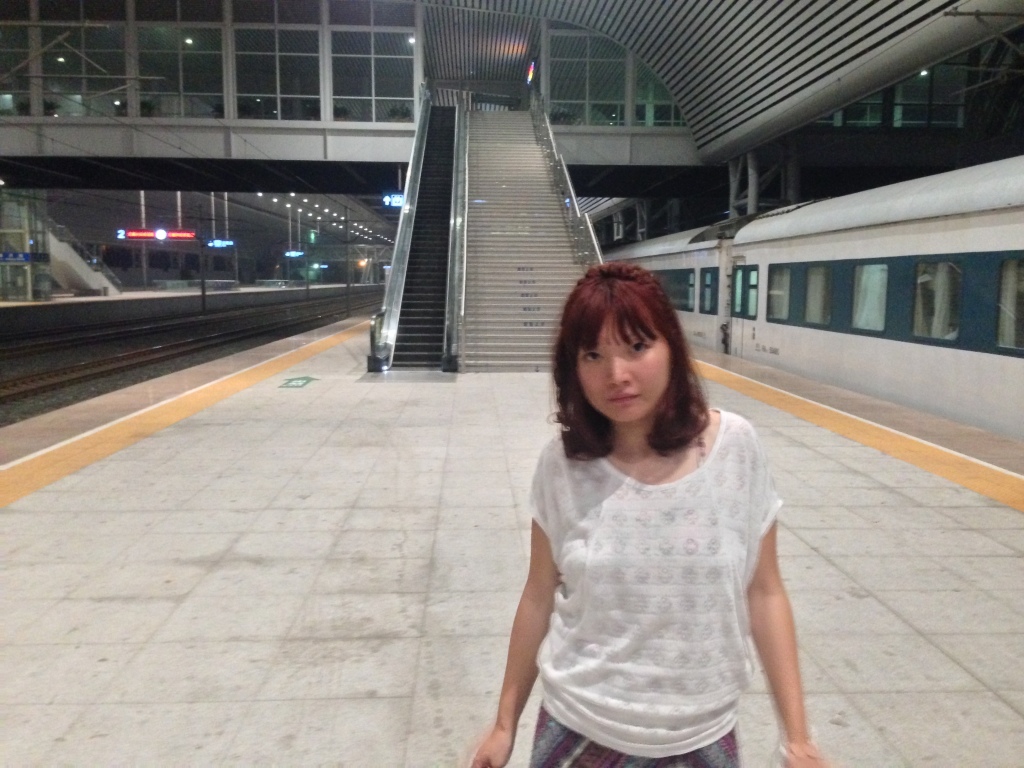
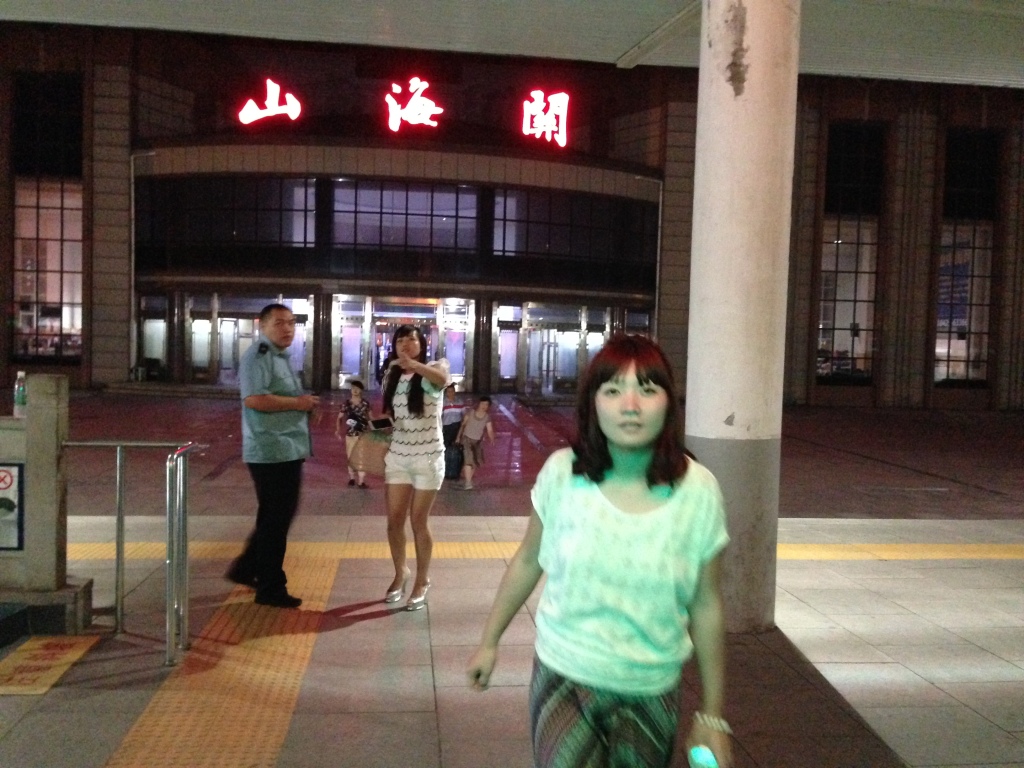
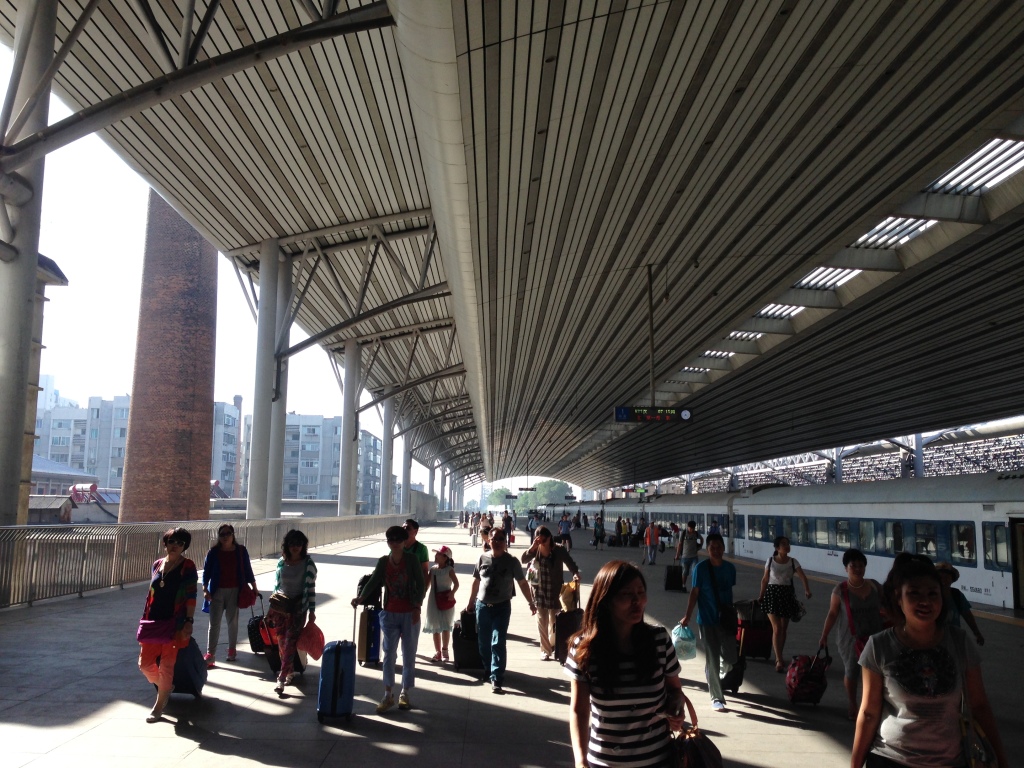
The next morning we awoke in Dandong. The Korean peninsula is separated from China by the Yalu river. Several cities line each side of the river. At this point on the river, Dandong (China) lies opposite Sinŭiju (DPRK). This is one of the major places in China were you can get a train into North Korea.
The first thing you see on coming out of the train station is a giant statue of Chairman Mao. We had to meet a contact here to sort out a few things before boarding the train to North Korea proper. We went to a hotel next to the train station and got ourselves a coffee while we waited.
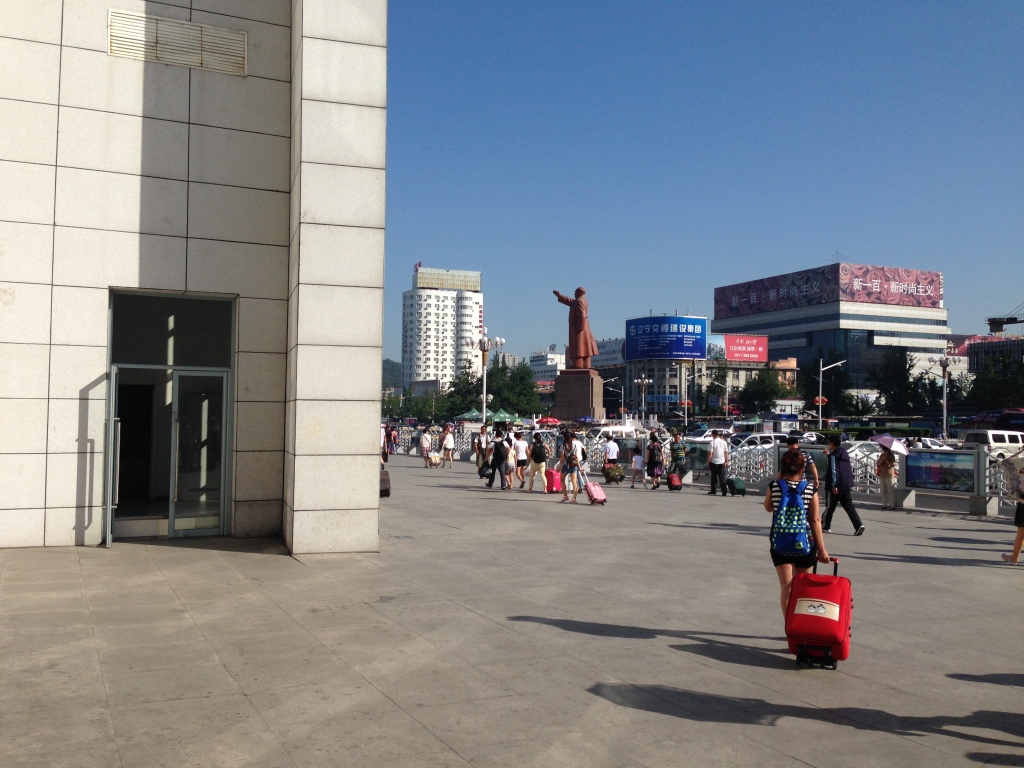
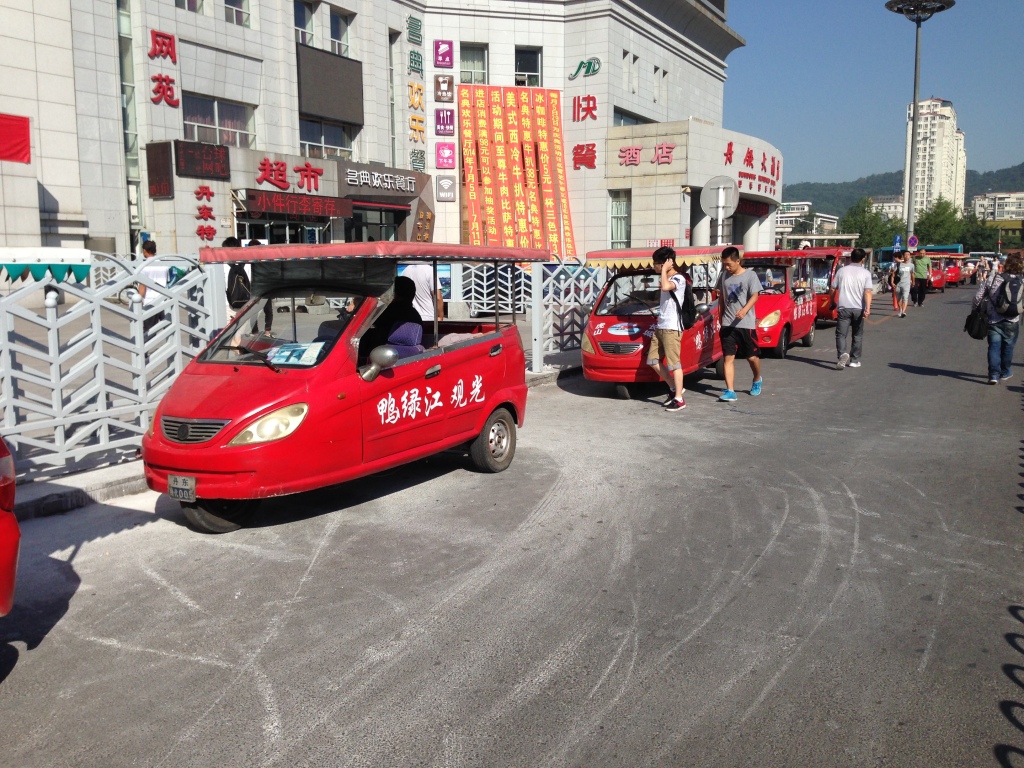
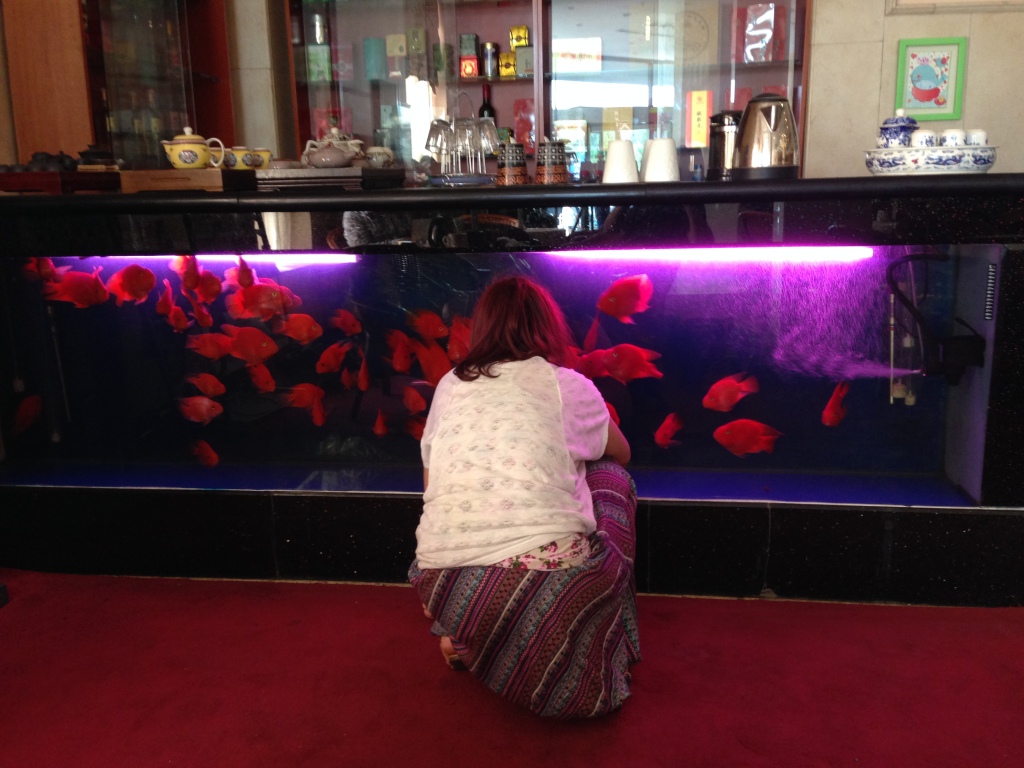
With our tour guide’s contact we arranged for a driver to pick us up when we got back from North Korea. We were supposed to be going to South Korea, but Yi’s visa didn’t work out, so we decided to go travelling along the border between North Korea and China. This meant going further northeast along the Yalu River.
Train to the DPRK
First we had to go through customs – we were leaving the country after all. This customs was a little bit strange, they took our passports off us and would give them back to us when we got on the train. After going through the border checks we bumped into the football team again. This was a duty free zone, so it was here that we bought a pack of cigarettes that we could provide as gifts to any soldiers we meet.
The call came and we boarded the train. It turns out we are in the same cabin as the football team so they came over and said hello to us. After boarding we were all told to get off the train again and wait for our passports.
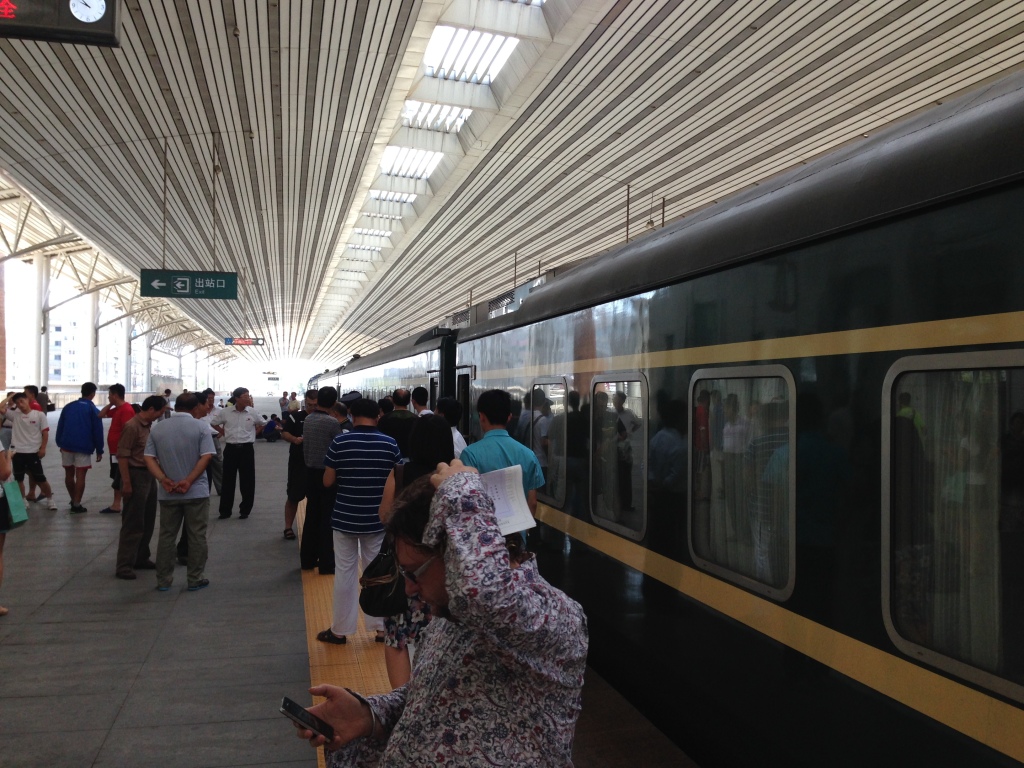
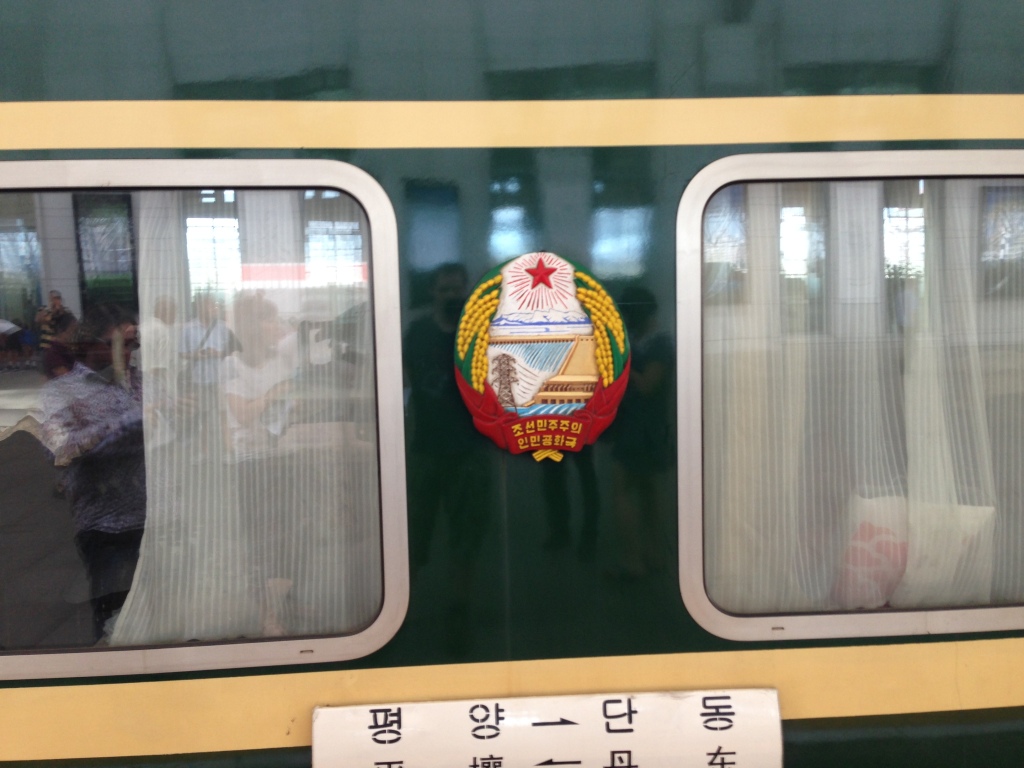
While we were outside waiting a Chinese man and his son came up to me and asked if my father or my grandfather had been to North Korea. I gave them the honest answer – “Actually, yes!”. They responded, “mine too!”. It’s strange how war can bring enemies together, even after only one or two generations. These two were actually sharing our bunk with us so it was fortunate that they were two very cool people.
Eventually we got our passports back and could get back on to the train. We cracked open the beers we bought in Dandong and waited for the train to move. While we waited we got talking to our cabin-friends. Their father/grandfather had passed away recently so, since he was a Korean war veteran, they were going to the war memorial to pour baiju (a Chinese liquor) on the ground. This is a typical Chinese way of showing respect to the dead – one that involves sacrifice.
The train started moving. We were on our way to the DPRK. Our tour guide made sure that we kept an eye on the next bridge along. This bridge was bombed by US forces during the Korean war, but only the southern side. The northern side was Chinese so they avoided bombing that part so as not to annoy the Chinese. That didn’t work out so well.
The point was that when we got past the halfway point there was no more bridge:
We were officially in North Korea.
Sinŭiju
Our first stop was in Sinŭiju. Here we would have to go through North Korean border patrol. Basically soldiers would get on the train and check our ID. As it turned out, our tour guide knew most of them. As part of the checks our bags had to be searched. The guard would search our bags one by one, and with childlike curiosity would ask what certain things in our bags were.
Unlike soldiers I’ve encountered in Eastern Europe, these soldiers seemed much more relaxed, friendly and weren’t scary in the slightest. When seeing me and Yi together, the guard made some sort of hand signal pointing at us two and asking us if we were “aein-i” (lovers). We said yes and he seemed to find it really cute.
Later another guard came in. Our tour guide obviously knew him because he immediately handed him his iPad for him to play with. He would flick through all the pictures on the iPad, and our tour guide would tell him what each of the pictures were. He seemed disappointed afterwards that there were no new games on it.
Our Chinese friends had disappeared, and when they came back they had beers in hand. I asked them were they got them – it turns out they were selling beer on the platform. On hearing this we instantly charged out to find our own beer. We stocked up a little and came back to drink our first beer in the DPRK.
After this the train started moving again.
Lunch on the train
After a short while we went for lunch. The food, as it turns out, was pretty amazing. In typical Korean fashion, our table was filled up with more side dishes than you could possibly count and included kimchi, chicken, noodles and tomato soup. The coach joined us and, seeing that I hadn’t finished my meal kept encouraging me to eat more. He wouldn’t let up so I ended up eating more than my fill.
Countryside
We were now travelling through the countryside of North Korea, and it turns out that it is very beautiful:
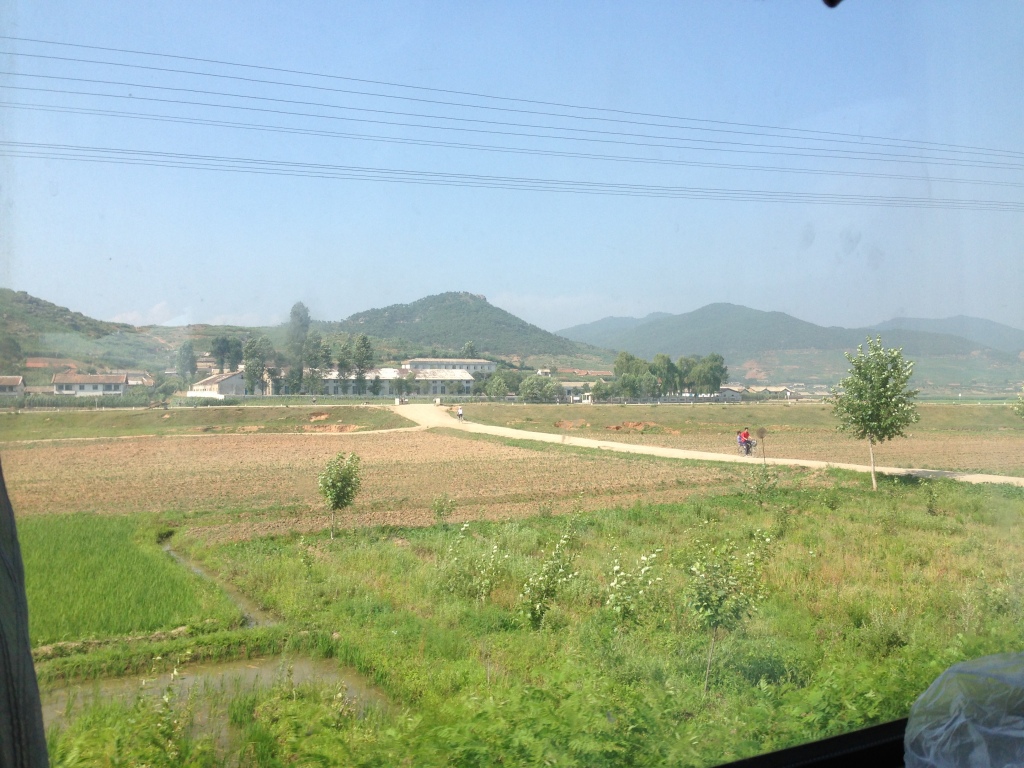
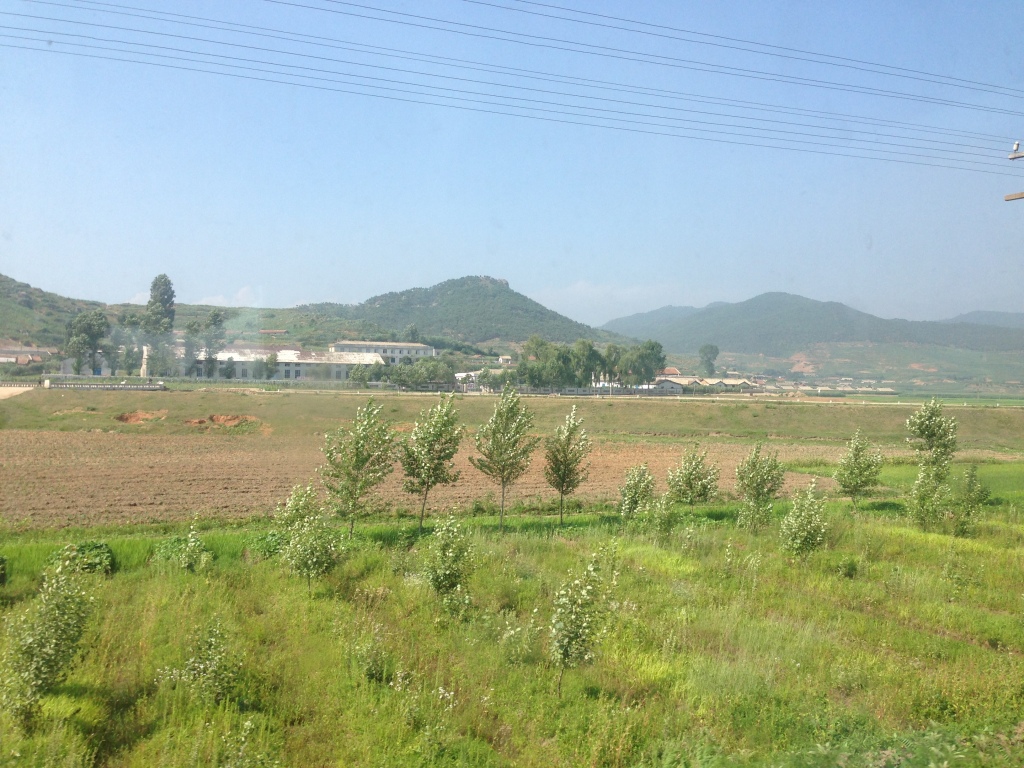
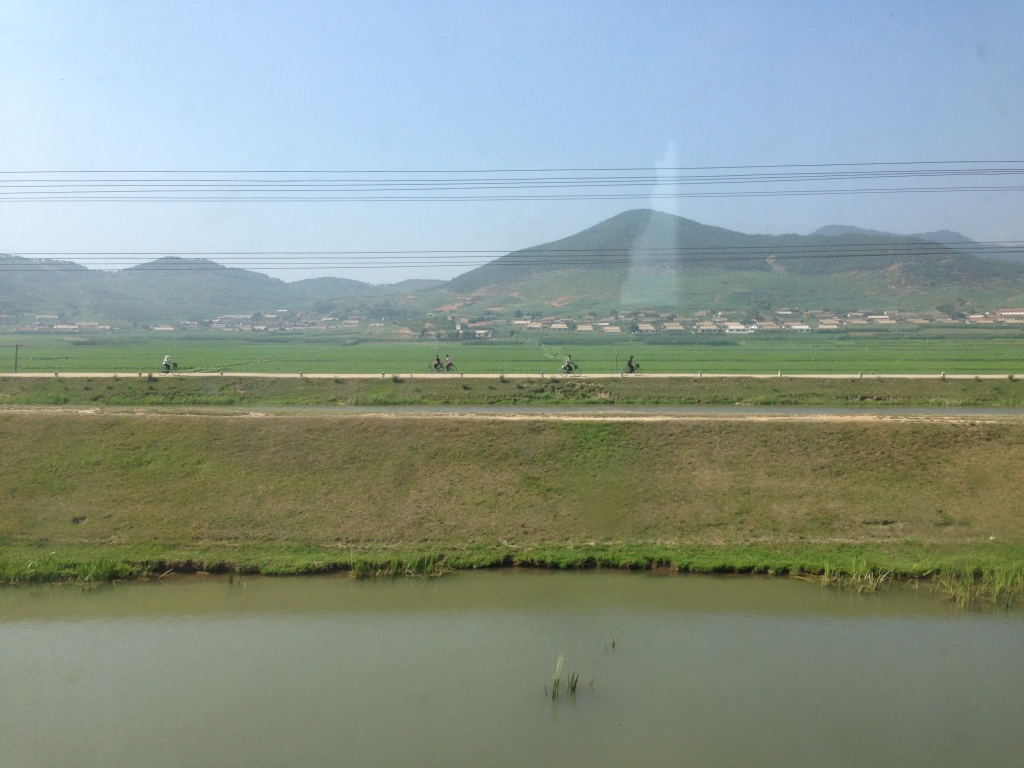
Some observations I made while on the train:
- There are hardly any cars in the country – most people seemed to travel around on a bicycle.
- The farms don’t seem mechanised. Although I saw a few tractors, it seemed that oxen are used as beasts of burden here.
- There were several crop farms and no livestock farms. Whether this means meat is scarce, or that we just weren’t near any livestock farms I don’t know.
- There were plenty of children playing in the river. It seems North Koreans enjoy swimming a lot.
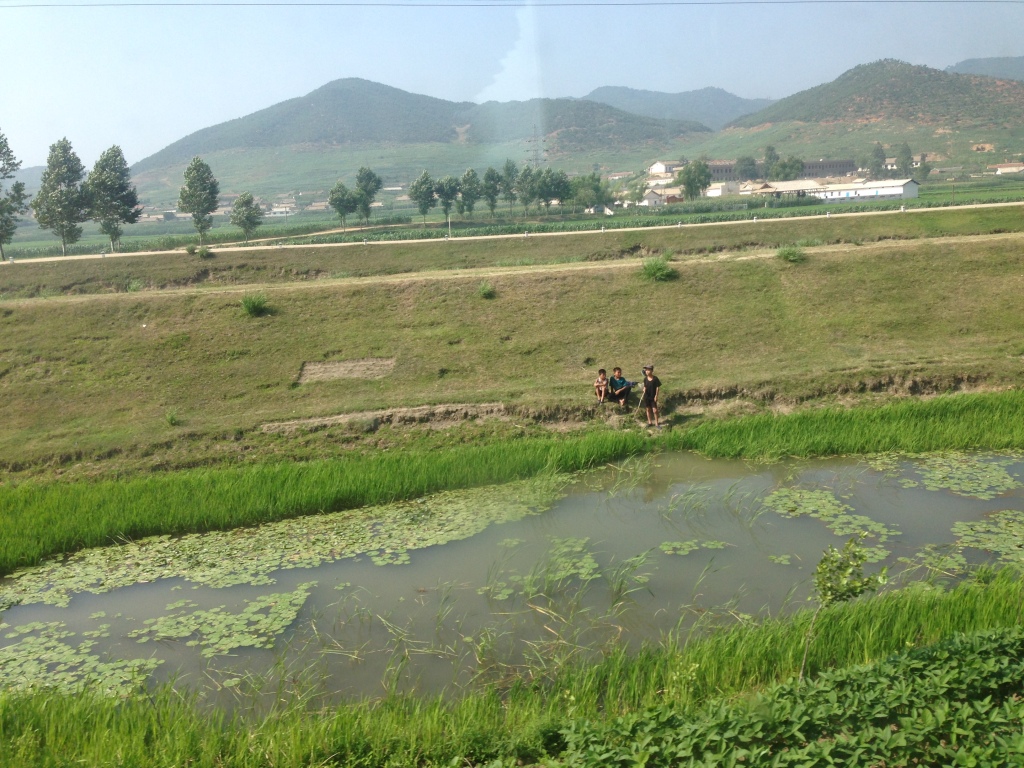
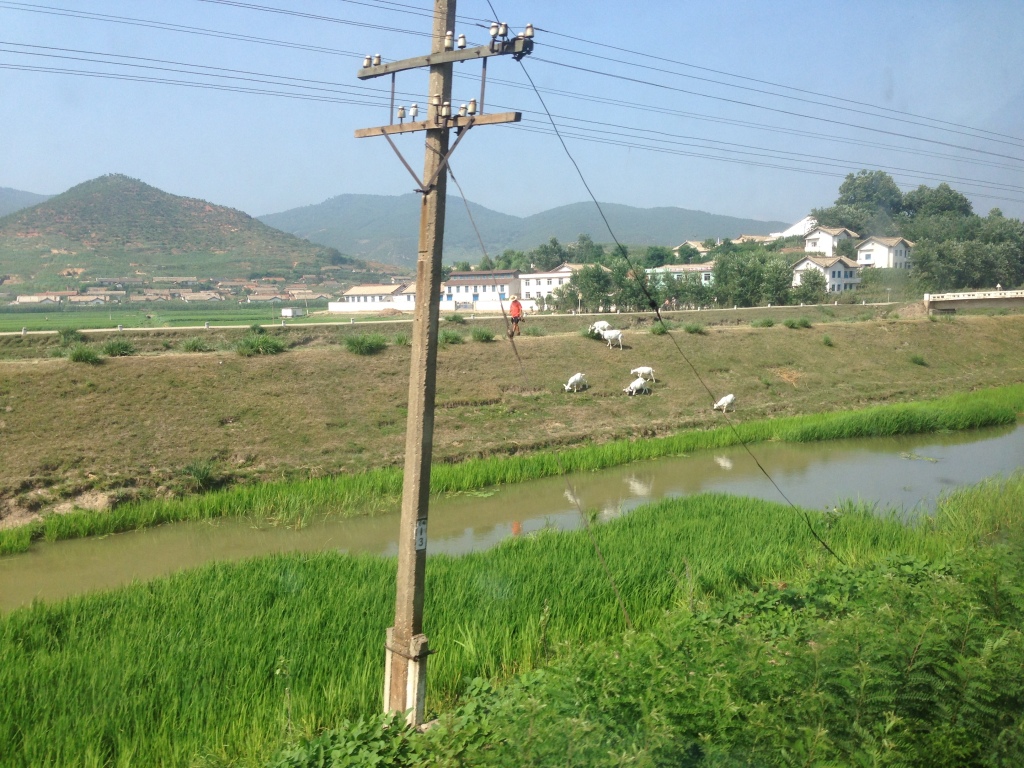
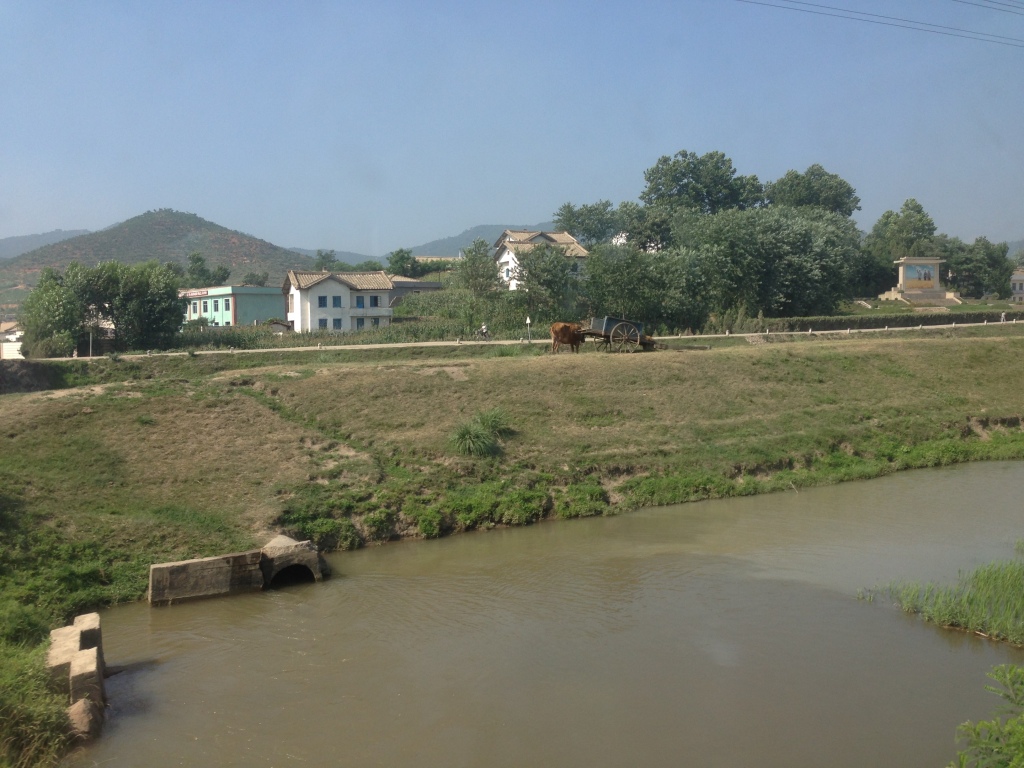
The train would eventually arrive in Pyongyang. Here we would meet up with the rest of our tour group and head over to the Yanggakdo hotel where we would stay for the rest of our trip.
